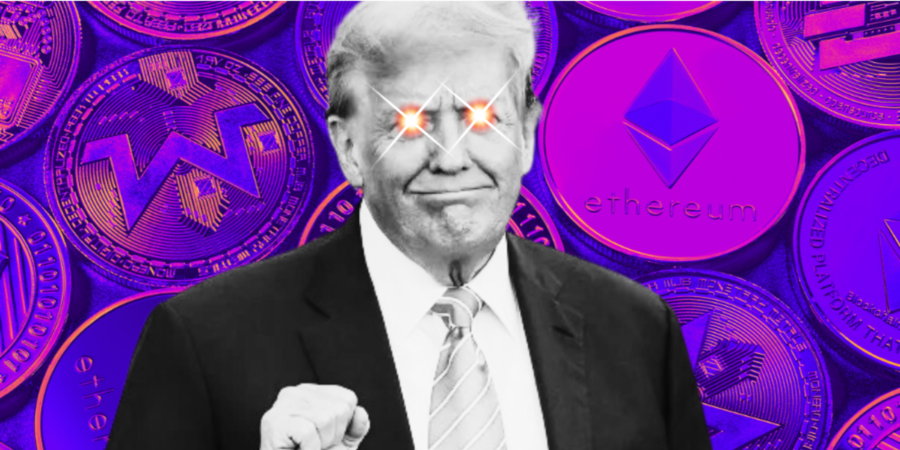As the dust settles on the 2024 election, the cryptocurrency community is abuzz with excitement over the potential implications of a Trump victory for the industry. Markets are already pumping to new all time highs on the expectation that Trump will make good on his promises to build a US strategic bitcoin reserve and appoint a dedicated “crypto czar” tasked with building a safe harbor regulatory framework for US crypto businesses. But perhaps no promise he’s made has received more unbridled enthusiasm than his vow to fire SEC chair Gary Gensler on day one – a promise preemptively fulfilled this week as Gensler announced his resignation effective January 20, 2025.
This effectively spells the end of the SEC’s long-standing war on crypto, as well as the Biden administration’s insidious “Chokepoint 2.0” that has unfairly targeted American crypto businesses with lawfare and financial discrimination for years. In addition, the Trump family’s promotion of decentralized finance protocol World Liberty Financial aligns their interests with those in the industry who have been clamoring for common sense crypto regulatory clarity, instead of the current regulation-by-enforcement approach that has left many companies and investors uncertain about the legal landscape.
Speculation is already rife about who will replace Gensler as the next SEC chair. Crypto purists would love to see this role filled by current SEC member Hester Peirce, who has regularly offered scathing dissents to Gensler’s seemingly never-ending prosecutions and bureaucratic overreach. Other strong contenders include former SEC member Dan Gallagher (currently chief legal and compliance officer at Robinhood) and pro-crypto securities defense attorney Teresa Goody Guillen. Whoever Trump appoints to this role will have a significant impact on the future of crypto regulation in the United States.
However, caveats abound. Just as neocons infiltrated Trump’s first administration (and are currently trying to weasel in to Trump 2.0), crypto enthusiasts are wary of hidden poison pills that could undermine the promise of this new crypto dawn in America. A “bipartisan effort” by Senators Cynthia Lummis, Kristen Gillibrand and “anti-crypto army” Elizabeth Warren continue to try and amend otherwise pro-crypto bills with language that would bolster KYC surveillance and penalize privacy-preserving tools – a potential blow to the very ethos of decentralized finance. Two steps forward, one giant step back.
Moreover, the presence of technocrats in the White House could spell trouble for civil liberties in the United States. With Elon Musk advocating for brain chips and JD Vance financier Peter Thiel’s surveillance network Palantir in the mix, there’s a risk that the pro-crypto stance of the administration could ultimately be a nice distraction from the rise of an unprecedented amount of new digital threats to individual privacy and freedom. Not to mention, the overton window on robot policing is already being normalized by the recent addition of a military robo-dog patrolling Mar-a-Lago. One can imagine how quickly all of these new technologies could be deployed under a future administration to control civilian dissent.
There’s also an interesting narrative swap happening now regarding CBDCs (central bank digital currencies) – essentially, programmable money that can be restricted by the government for wrongthink. Although Trump has rightly campaigned against them, in his final pro-crypto push he is supporting the growth of stablecoins (crypto assets pegged to the dollar). While this may sound like a great way to extend the US dollar’s dominance, many of the largest stablecoins (USDT, USDC) are functionally no different than CBDCs in their inherent ability to be centrally controlled (and programmed) by the issuer. All the more reason to ensure that whatever stablecoins are promoted are inherently decentralized in their design (crvUSD, MIM) and unable to be “turned off” at the behest of the latest authoritarian impulse.
Trump’s victory may indeed signal a turning point for the crypto industry, but it’s essential to remain vigilant and aware of the potential pitfalls that may come with it. As the industry continues to evolve, it’s crucial that we remain vigilant to the principles of decentralization, privacy, and freedom – trusting, but verifying along the way. Only by doing so can we ensure that the future of crypto is one that benefits both individuals and society as a whole, and does not fall prey to the same corrupting forces that have co-opted so many other critical technologies.
This Story originally came from humanevents.com

